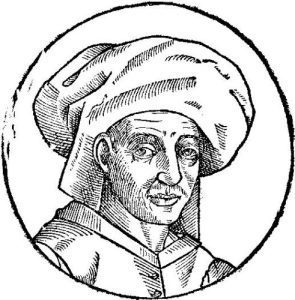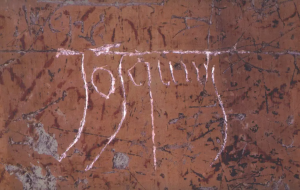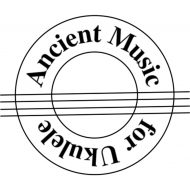All sources are Wikipedia.
Josquin des Prez (ca 1450/5 – 1521) was a composer of High Renaissance music, who is variously described as French or Franco-Flemish. Considered one of the greatest composers of the Renaissance, he developed a complex style of expressive—and often imitative—movement between independent voices (polyphony) which informs much of his work. Josquin was a singer, and his compositions are mainly vocal. They include masses, motets and secular chansons.
Influential both during and after his lifetime, Josquin has been described as the first Western composer to retain posthumous fame. His music was widely performed and imitated in 16th-century Europe, and was highly praised by Martin Luther and the music theorists Heinrich Glarean and Gioseffo Zarlino.
The mass is the central rite of the Catholic Church, and polyphonic settings of the ordinary of the mass—the Kyrie, Gloria, Credo, Sanctus and Agnus Dei—increased in popularity in the 14th century. From the 15th century, composers treated it as a central genre in Western classical music in accordance with greater demand. By Josquin’s time, masses were generally standardized into substantial, polyphonic five-movement works, making it difficult for composers to satisfy both liturgical and musical demands.
Josquin’s masses are generally less progressive than his motets—though he is credited with numerous innovations in the genre His less radical approach may be explained by most of the masses being earlier works, or the structural and textual limitations of the genre. Almost all are for four voices.
Because of his immense prestige in the early sixteenth century, many scribes and publishers did not resist the temptation of attributing anonymous or otherwise spurious works to Josquin. The German editor Georg Forster summed up the situation admirably in 1540 when he wrote, “I remember a certain eminent man saying that, now that Josquin is dead, he is putting out more works than when he was alive.” Thus, the authenticity of many of the works is disputed on stylistic grounds or problems with sources or both. This thorny issue has been taken up vigorously in the now nearly complete New Josquin Edition.

.Selection of Pieces for Inclusion in this Book
The pieces in this publication are arrangements of works in:
- Libro de música de vihuela (1552) by Diego Pisador
- Intabulatura di liuto (Milan 1536) or Intabolatura de lauto (Venice 1546) by Francesco da Milano
- Orphenica Lyra (Seville, 1554) by Miguel de Fuenllana
- Del Delphin (Vallodolid 1538) by Luys de Narváez
Diego Pisador (ca 1510 – 1557) was a Spanish vihuelist and composer of the Renaissance. In 1552, he published a book of works for vihuela titled Libro de música de vihuela. It is divided into 7 books and consists of 95 pieces. As was common at the time, many of the works are transcriptions (or intabulations) for vihuela of works by other composers, including eight complete Masses by Josquin des Prez.
Francesco da Milano (also know as Francesco Canova da Milano, Il divino, Francesco da Parigi and more) (1497 – 1543) was an Italian lutenist and composer. Francesco was heralded throughout Europe as the foremost lute composer of his time. More of his music is preserved than of any other lutenist of the period, and his work continued to influence composers for more than a century after his death. He is the author of at least 140 tabulations, of which about 40 are transcriptions of other composers.
Miguel de Fuenllana (ca 1500 – 1579) was a Spanish vihuelist and composer of the Renaissance. Little is known of his life. He published a Libro de música para vihuela intitulado Orphenica Lyra (Seville, 1554), known briefly as Orphenica Lyra. His style is polyphonic and he was adept at finding apt harmonies and counterpoint to popular melodies.
Luys de Narváez (flourished 1526 – 1549), also Luis de Narváez, was a Spanish composer and vihuelist. Narváez was very highly regarded during his lifetime, particularly for his vihuela playing; he was reported to be able to improvise four parts over another four at sight. The 6-volume collection Los seys libros del delphin de musica de cifras para taner vihuela or Del Delphin for short, was published in Vallodolid in 1538.

